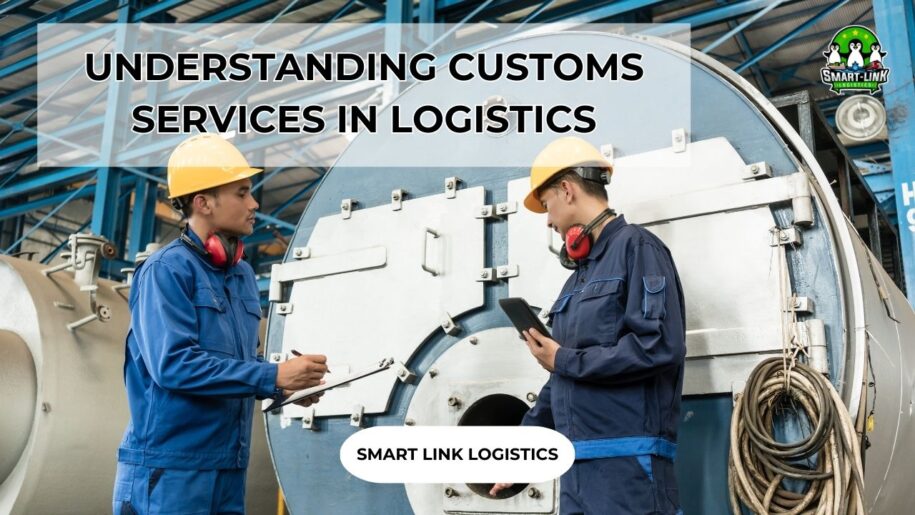
UNDERSTANDING CUSTOMS SERVICES IN LOGISTICS
The logistics industry is rapidly growing, leading to an increase in customs services. These services are designed to provide convenience and cost savings for both the owner and the buyer of goods. So, what exactly are customs services in logistics?
What are customs services?
Customs services have emerged to meet the increasing demand in the logistics sector, especially as the volume of imported and exported goods continues to rise. These services save time and effort for both the owners and buyers of goods. Customs services encompass the tasks performed by logistics companies to ensure the smooth clearance of customers’ imported and exported goods. In return, the service provider receives a fee as agreed between the two parties.
What do customs services include?
Currently, customs services in logistics are diverse and extensive, with many different forms. Before using these services, it’s important to thoroughly understand the different types of services, as well as the smaller services included within the overall customs package.

Customs Service Options in Logistics
When using import-export customs services, you have two main options based on who will handle the customs procedures on your behalf:
Customs Brokerage
The owner provides a letter of introduction to the company or individual performing the service. The service provider will use the letter of introduction to complete customs clearance procedures on behalf of the owner, without their legal name appearing on the customs documents.
Customs Agency
In this option, the service provider will use their name along with a digital signature on the declaration and customs documents. The company uses its name to perform customs clearance services for the customer.
Each form has its own advantages and disadvantages. For example, customs brokerage services are often convenient, but the service provider does not bear legal responsibility. The owner remains liable if any issues arise.
What Does a Comprehensive Customs Service Include?
Many people believe that comprehensive customs services cover all operations and costs, where the owner only needs to provide documents, stamp them, and receive the goods. This is true, but it’s not always as simple as it sounds. Depending on the type of goods, the procedures may be straightforward or complex, requiring more effort.
For easy shipments, the process typically includes:
- Preparing the customs declaration based on documents provided by the owner.
- Preparing the customs documentation.
- Submitting the documents, paying taxes, and completing clearance procedures.
However, for complex shipments, the steps may include:
Obtaining Import-Export Licenses If a license is not obtained and a customs declaration is made, fines will be imposed. Therefore, obtaining the license is essential before proceeding with the following steps.
Specialized Inspections These include quarantine, fumigation, registration, quality checks, chemical declarations, etc. Each type of inspection has its own associated cost and may be included in the overall quote if using a comprehensive customs service.
Inventory Inspection Customs officials will use specialized equipment to inspect the actual goods. If there are any doubts, additional costs may arise.
Price Consultation and Post-Clearance Audit If the declared value of the goods is lower than the actual value, a price consultation or post-clearance audit may be required, leading to additional costs.
Refund of Import Tax and VAT Tax refunds rarely occur, but if they do, they take time and may incur additional costs.
Why You Need to Know About Customs Services in Logistics Customs services save time and effort for both the owners and buyers of goods. Choosing a reputable logistics provider for these services helps minimize risks and optimize the import-export process.
Considerations When Using Customs Services in Logistics Currently, customs services provided by logistics companies are relatively consistent in effectiveness, but you should keep the following in mind:
- Choose a provider with pricing suitable for your type of goods: Depending on the type of goods, costs will vary. Choose a provider with reasonable pricing for your shipment.
- Select a provider with relevant strengths: Each provider has its own strengths, so choose one whose strengths align with your shipment needs.
- Choose a transparent customs service provider when signing contracts: It’s advisable to thoroughly research the service provider to avoid unnecessary costs in the contract.
The above is a detailed guide on customs services in Logistics. We hope that the insights shared in this article will provide valuable information for individuals and exporting entities. We are committed to offering you services and solutions that help your goods reach global markets with dedication and customer collaboration. With over 13 years of experience in the logistics industry, we take pride in being a reliable and professional partner.
Hotline: + 84 935 766 039 to know more about our services

If you require assistance with international import and export of goods, please contact our team at Smartlink Logistics. We are available to provide you with professional guidance on our services and the necessary customs procedures.
SMART LINK: BEST SERVICE BEST YOU


































